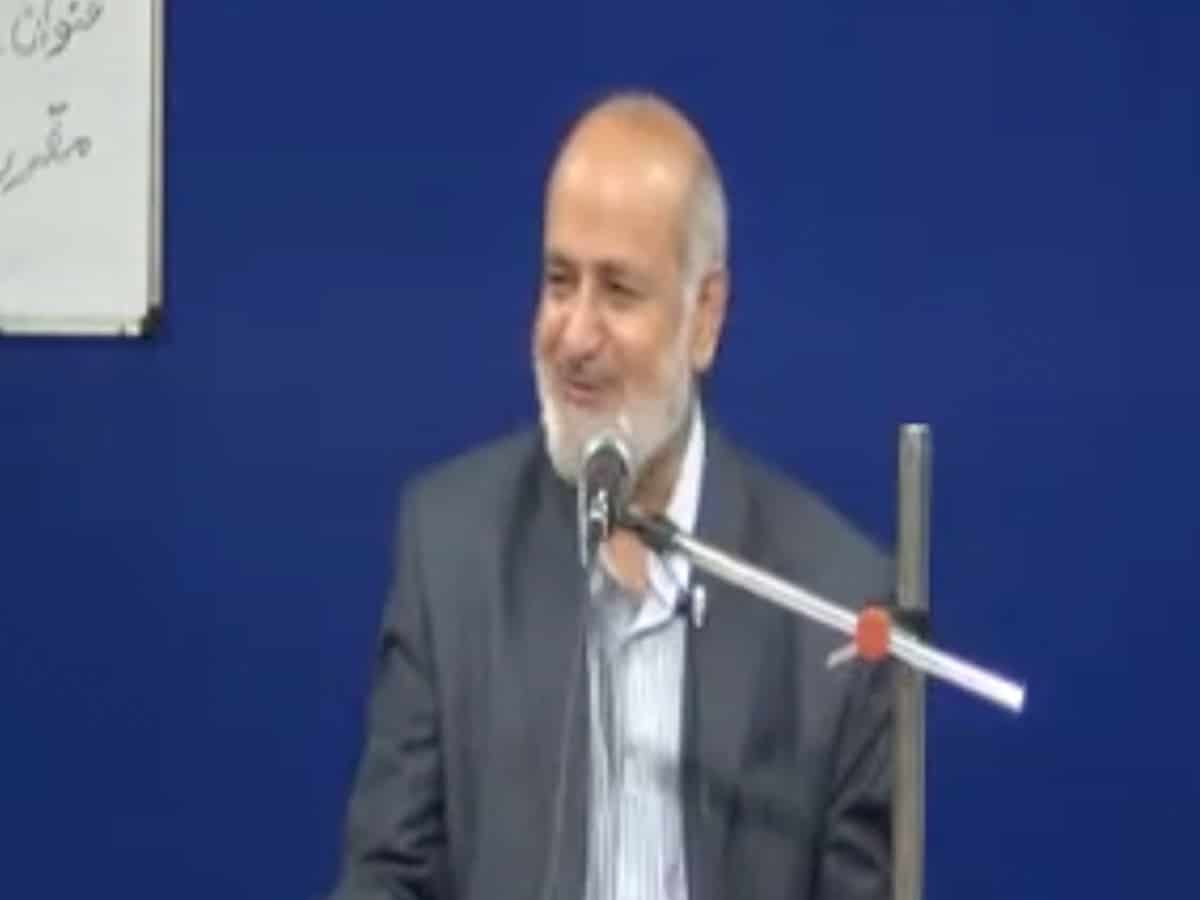Syed Hurairah
He could explain Iblis’ (Satan) mocking of Jibreel (Archangel Gabriel) in the last misra (line) of Iqbal’s ‘Jibreel-o-Iblees’ in the most gleeful fashion. There always was a faint smile on his face as he read aloud how Jibreel asked his old colleague or humdum-e-daireena (that is Satan)of his general condition, of how there is a lesson in defiance, that one could learn about the faith, and remain a steadfast believer. This was his wisdom. This is what Dr Ziauddin Ahmed Shakeb did.
I received a call which informed me of his passing in London. It was a clenched fist thrown at me, squarely aimed at the stomach. The radiating pain in the gut forced air out of my lungs and for a second, I felt I could not breathe. My eyes were still damp with tears, but I pulled myself together and decided to write about the profound effect on me.
My parents and an uncle took me along with them to meet this man who they had immense respect for. It later learned that this soft-spoken man, with a short beard and a pencil-thin moustache was none other than Dr Ziauddin Ahmed Shakeb.
Shakeb saheb spoke to me, a ‘Westernised’ young man then in the early 20s, inebriated in youth, feeling invincible in the world of rock music, brimming with ideas, in the language I believed in: of passion, rebellion and defiance. In hindsight, teaching Jibreel-o-Iblis to me was, I believe, was his cleverly-crafted ploy to sit me down, strip me of my perceived invincibility, layer-by-layer and show me the mirror, all the while explaining to me that it is okay. That there is hope. That there is always hope.
For, which 23-year-old rock musician could ever believe that Allama Iqbal, who romanticised Islam, and set standards of Muslimness soaringly high, wrote of Iblis’ relationship with God thus: ‘main khatakta hoon dil-e-yazdan mey kaante ki tarah’, ( I am a thorn in the side of God) and in the same breath mocked Jibreel’s eagerness with ‘tu faqat Allah-u Allah-u Allah-u’(You merely chant Allahu, Allahu).
Shakeb saheb was deeply perceptive. He knew I was looking for answers. He could see that the range of emotions, flashes of which I inadvertently revealed before him, had beleaguered, had pained me. And he set out to do something about it.
I clearly remember. It was a warm night. Shakeb saheb, calm as always, was sitting in his room, books behind his head, one of which was of the poet Bedil.
“What shall we read today, miyan?” he asked with a smile on his face.
“As you wish, sir,” I said.
“Motor,” he read in a flat tone.
And that is when he took me on a transformative journey. From Jibreel-o-Iblees, and the endless cosmic nothingness of soz-o-saz o dard-o-dagh-o-justuju-o-arzu in which Iblis wandered, to the ‘Motor’ and the lessons of being discreet contained therein. There is khudee and there is khamoshi, he explained. The idea is to be discreet and grounded.
But Shakeb saheb also had to drive the point home that being discreet and measured in responses does not mean letting go the greater goal. Ambition and excellence are equally important. And that is when he began teaching me Subha Chaman. It was a conversation between the morn, dew and a flower. The morn is light footed, that the pearls of dew do not break under its weight. More so, that despite taking mountains and woods in its warm embrace, it does not let go of the skies.
When he was not teaching me, I often eavesdropped on his conversations with his friends and family. They often revolved around poetry, the preservation of the Urdu language, theology, history, art and Hyderabad. Though he was born in Kakori in Uttar Pradesh, he had made Hyderabad his home.
It was one night in particular that one of his relatives was about to take his leave even as I walked into his room. That relative of his, a good looking man who appeared to be in his mid-thirties, said ‘Allah Hafiz’. It was clear that somehow this choice of a parting expression Shakeb Saheb found difficult to agree with. He explained to the young man to either say khuda hafiz or the expression which Prophet Muhammad and his companions used: assalaamualaykum.
It appeared that Shakeb Saheb would come to Hyderabad for a sole purpose. I am here for my mother, he would often say. I found it quite interesting. Contrary to what one would expect, he seldom or never used the word walida. It was always its English equivalent. He was devoted to his mother, deeply. And after his mother passed, it seemed as if Shakeb saheb had no reason to return to Hyderabad.
With him gone, I cannot but imagine that Shakeb saheb is among the company of all that he loved – words, images, and most of all, his beloved mother.

